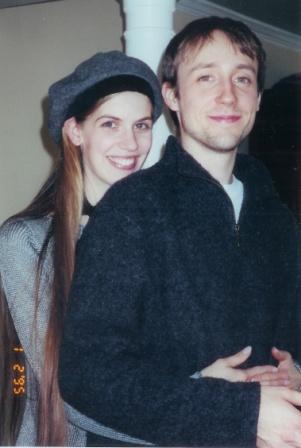Part II of a three-part conversion story
As you may or may not know, Southern Evangelical Seminary, located in metro Charlotte, NC, is very unique among graduate schools of theology. In fact, I know of no other like it. Those which even approximate it (e.g., Trinity Divinity School, Talbot School of Theology, etc.) are a far cry from the teaching of SES in many respects. Two ways in which it is unique are the following. SES has a specific and delineated apologetic method (i.e., the classical method), and it has, further, a specific philosophy (i.e., the philosophy of Thomism, after St. Thomas Aquinas).
Clearly, the great Thomistic Evangelical Dr. Norman Geisler was a huge draw for me to consider SES in the first place. But, when I met the other faculty there, I knew it was the place for me. I didn't even apply to become a student at any of its competitors, as I was so impressed with the caliber of SES upon meeting its faculty and seeing the students it was producing. So, off I and my family went to Charlotte, NC in August, 2000, hoping to end with a Master of Divinity, Apologetics degree.
When I went, I was already convinced of the classical apologetic method, which the seminary (and most notably Geisler) employed. I was also, with a few important exceptions here and there, already convinced of the particular Evangelical theology of the Seminary. What took a little time and a few courses for me to swallow it, was the philosophy advocated by the Seminary. Originally, I thought it odd that a seminary would have a specific philosophy that it espoused. I had always thought the nature of philosophy to be too undetermined for it to be wise for a school to have an "official" philosophical position. Also, I had never read, amazingly enough, any of St. Thomas Aquinas' writings while in undergrad, even being a philosophy major at the University of Georgia! So, I was hesitant without any doubt, not wanting to just accept this philosophy on the authority of the SES professors, all of whom were either Thomists or very sympathetic to Thomism. I wanted to be shown it, and to participate in the discovery of this fact on my own-at least to an extent.
Well, despite my hesitance I did become convinced of the philosophy. That is, I became convinced that the philosophy of St. Thomas Aquinas is the highest expression of philosophy ever espoused and that the level of theological work that his philosophy can do for you, is just amazing and unparalleled. It was interesting though that despite my acceptance of classical apologetics, along with the embracing of the philosophy of Thomism, these things together never naturally brought up the question of the overall theologies of many individuals I read in graduate school, an enormous amount of whom were Catholic. And as regards the historical theologians we looked at, the theologies of Sts. Augustine, Anselm or Thomas Aquinas were always just selectively looked at, and appealed to, when it served the Evangelical purpose of SES.
Then I met an individual who would later become very important in my religious life. One of the things he did as we were becoming friends was to introduce to me the importance of the debate between Catholicism and Protestantism. Every student of SES does naturally at least wonder at the thought of the Catholic Church, as in the plausibility of it being "Christ's Church," as it claims itself to be. Even if such thoughts are fleeting and go as quickly as they come, there are still entertained. Any student of history knows just how very ‘Catholic’ the Western Church was prior to the Protestant Reformation. Additionally, the individuals whose texts we SES students would read in our philosophy courses were nearly all, with very rare exceptions, Catholic authors. So, the situation in the Seminary was this: the apologetic method and the philosophy came from Catholics, not Protestants. These few facts are enough to raise a pertinent question for a student, and it usually runs thus: "Why is it that Catholics could be so right in their apologetics and philosophy, and at the same time get it so wrong in their theology?" Could there really be such a disconnect between philosophy and Christian apologetics on the one hand, and the theology they serve on the other? To say the least, this was an interesting question, (which, incidentally, was actually asked in classes) to which I never really heard a good answer. This plaguing question, along with the friend I had met who was already very interested in the Catholic vs. Protestant issue led naturally to an investigation on my part into the historic debate between the two camps.
Of course, I thought that the training I had received in seminary at the time of inquiry was robust enough (and the Catholics necessarily were wrong enough) to make this a short, though interesting investigation. For better or worse, things did not turn out as I had anticipated. I found that the Catholics I had already read and with whom I had been impressed in general apologetics and philosophy were no less impressive when it came to theology and/or apologetics.


0 Comments:
Post a Comment
<< Home